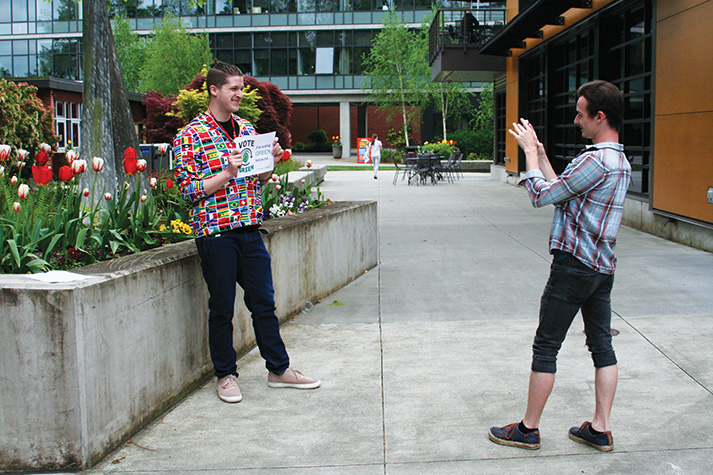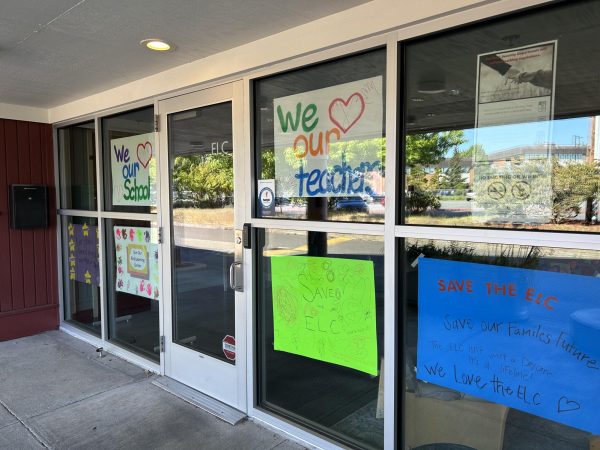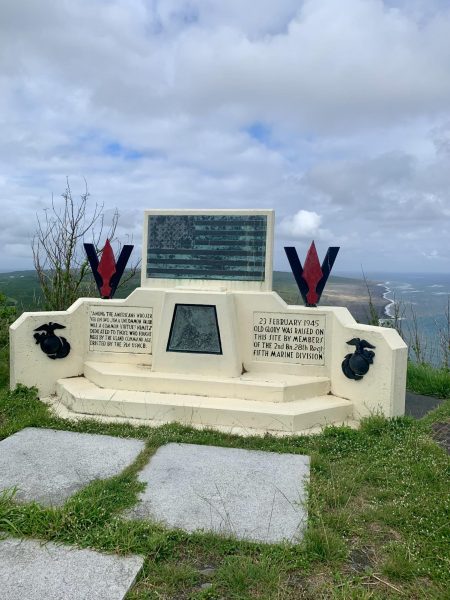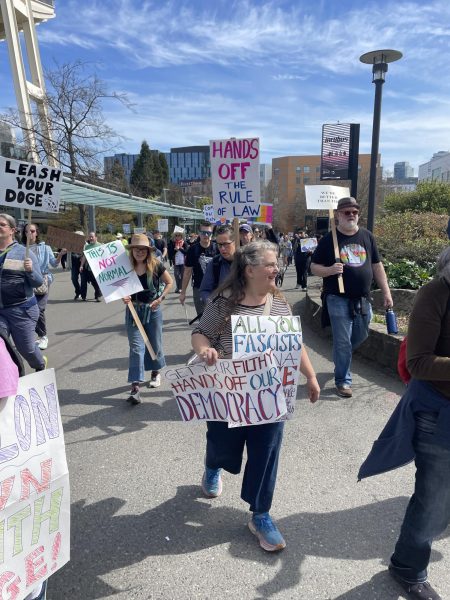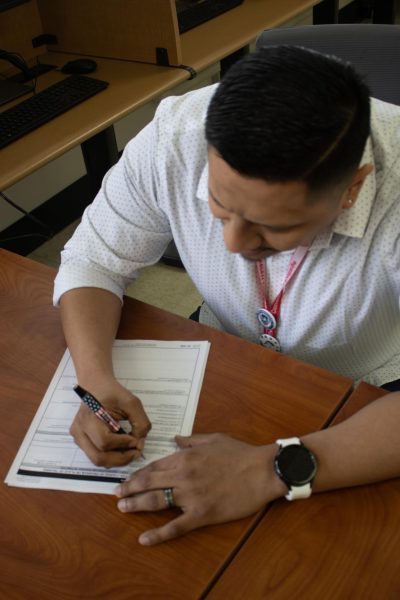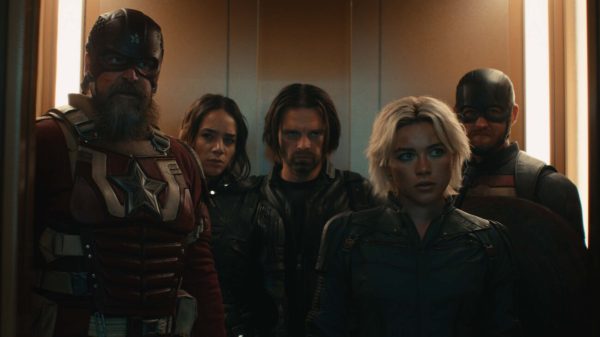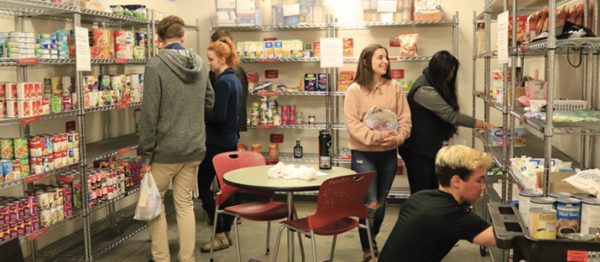A Sustainable Solution: EvCC’s Proposed Green Fee
Social Justice & Current Events Coordinator Cameron Calder poses for the “I’m voting green because…” campaign as Max Tinsley snaps a quick pic. Calder says, “I’m voting green because I think that being a good steward of the earth is something that we all should strive to do. We only have one planet, and as much as I like my Starbucks breakfast every morning, I think that if I were to abstain for one or two days and use that money to help pay the green fee, I would absolutely rather do that. What’s more important- the Earth, or my latte?” To see how other students’ responded, visit everettcc.edu/greenfee
College is expensive. The thought of additional fees can trigger a negative response in most students. But, do all fees cost students more in the end? EvCC student Max Tinsley, Communication Coordinator for the Green Fee Committee, doesn’t believe it has to.
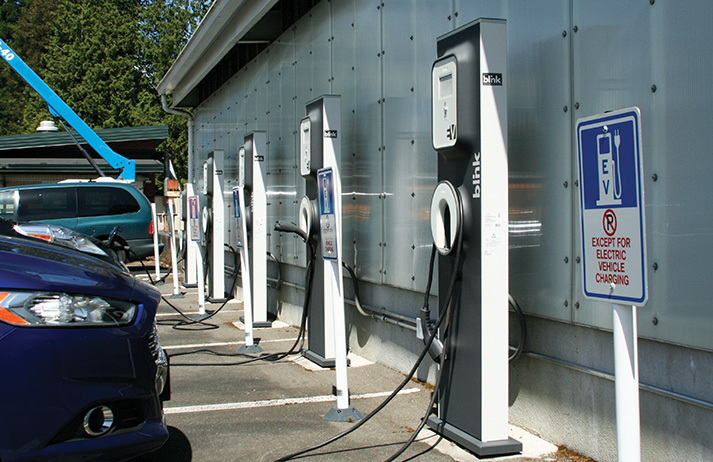
Charge it! Electric vehicle charging stations, located near the maintenance building, were provided by sustainability grants. Lately, those grants have been harder to come by. Molly Beeman, EvCC’s Sustainability and Resource Conservation Manager, says the proposed green fee “can actually help this college move towards lower emissions goals because the money will be collected from, but managed by and distributed by, students.” Max Tinsley affirms, “It’s entirely on the student’s terms. The benefit of that is we get to decide what our campus does. Every little project impacts us in some way… directly or indirectly.”
EvCC students will have the opportunity to vote May 21-24 on a proposed Green Fee. The fee, if approved, would mean a cost of $0.50 per credit, with a cap of $7.50 per quarter. The fee is associated with the cost of school, so it is covered by financial aid for those who are eligible.
Washington state currently sets tuition costs for community colleges. It factors in aspects like staffing and supplies, as well as the cost of running the buildings and campus.
“The more money we have to spend keeping the lights on here is eventually going to trickle back down to students paying more tuition,” says Tinsley, continuing, “We need to have a more forward-thinking mindset on this. Over time, if we want to make it more affordable to go to school, we need to make it more affordable to run the school.”
The Fitness Center recently switched to LEDs, which are projected to save the college $1,000-$2,000 per year. Other campus-wide efficiency projects have contributed to better stewardship of resources. “It requires continuous adaptation and learning,” says Tinsley.
College sustainability efforts have “basically reversed our increased dependence on electricity,” says Molly Beeman, EvCC’s Sustainability and Resource Conservation Manager. She continues, “We’re saving a ton of energy. We’re saving over a million kilowatt hours of energy compared to what we were doing. Compared to four years ago, we’re actually using less energy and heating and cooling more spaces.”
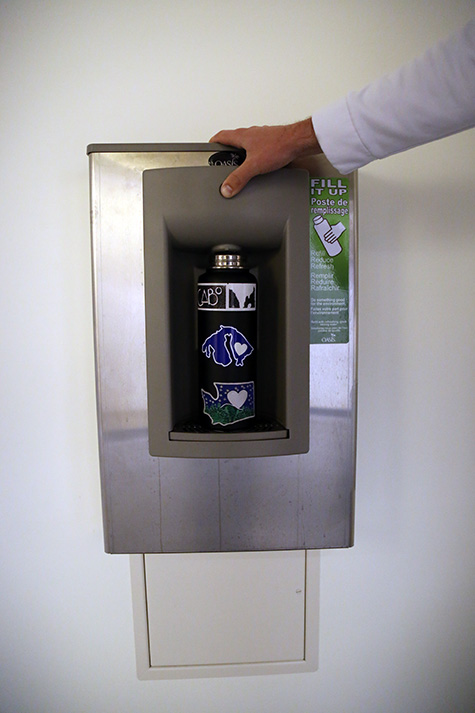
Water bottle filling stations were installed as a result of sustainability projects. The proposed green fee could contribute to more stations around campus. EvCC currently has 4 filling stations: one in Olympic Hall, one in the Parks building, one in Liberty Hall and one in the Fitness Center.
Proposed by students in 2017, the green fee initiative originated as a solution to dwindling grant money and campus sustainability funding. Beeman says, “It’s not like the college isn’t contributing – they are. [Sustainability] is in our strategic plans; it’s in our core learning outcomes.”
The fee would provide supplemental funds for the Office of Sustainability, implement a Campus Sustainability Fund (CSF) and create three student employment opportunities, akin to Student Life positions, in the Office of Sustainability.
Local Community Colleges including Edmonds, Bellevue and Shoreline all currently have sustainability fees.
Tinsley and Beeman say the great thing about the proposed structure of how the EvCC Green Fee would be administered is that students decide where the money will go. In addition to efficiency projects, money raised could go towards education for sustainability, food or transportation solutions, eco-justice concepts and more.
An example of student-led funding in action is Edmonds Community College’s “Cultural Kitchen” and their Campus Community Farm. According to their website, the outdoor kitchen hosts salmon and clam bakes, pizza parties, cultural cooking demonstrations, lectures, gatherings, and green construction service-learning projects. The kitchen was inspired by a request from the college’s Native American Student Association. The project was funded, in part, by EdCC’s Campus Green Fund.
Beeman says, “Something like this fee that Max, and the group he’s working with, has proposed can actually help this college move towards lower emissions goals because the money will be collected from, but managed by and distributed by, students so it can have a different focus – these projects can have a different focus than other ones on campus.
She continues, “If students decided that they wanted to take this funding and add it to something or create something that demonstrated zero emissions over a long period of time, they could do so.”
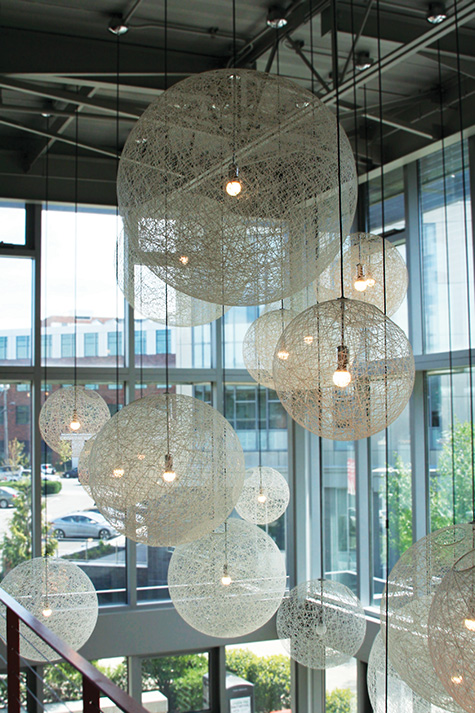
Savings illuminated. The Fitness Center recently switched to LEDs, which are projected to save the college $1-2,000 per year. “Over time, if we want to make it more affordable to go to school, we need to make it more affordable to run the school,” says student Max Tinsley. Tinsley is the Assistant to the Sustainability Manager and serves as Communication Coordinator for the Green Fee Committee.
Beeman has been a champion of obtaining grants to implement sustainability projects on campus. She estimates the grants have totaled “somewhere in the neighborhood of $2.5 million since 2006.”
Projects funded by grants include the water bottle filling stations, solar panels, car charging stations, the Whitehorse campus garden and the NW Neighborhood Cleanup. Grants have also provided free-to-the-community events such as holiday tree recycling and the Earth Week Series.
Lately, sustainability grants have been harder to come by.
Grants tend to focus on what’s trendy, explains Beeman. “Sustainability was that for a while,” she says. As time goes on, new causes take the spotlight and funding begins to dry up.
It doesn’t mean there aren’t any grants out there. But it is impractical to have to keep chasing after grant money to pay for things on a day-to-day basis.
“It’s not an effective way to fund something long-term,” says Beeman, “It makes what this campus does subject to the whim of popularity versus the students saying, ‘This is what we think is important and this is what we choose to invest our time and effort into.’”
Tinsley says that’s the basic idea as to why student fees usually tend to be most successful. “It’s basically by the students, for the students, 100 percent of the way,” he says, continuing, “It’s entirely on the student’s terms. The benefit of that is we get to decide what our campus does. Every little project impacts us in some way… directly or indirectly.”
“You have to invest in [sustainability],” says Beeman.
Tinsley and Beeman agree the best thing students can do is vote. Tinsley reminds, “We are here for the students in the end.”
Online voting, through MyEvCC Student Portal, will determine if the fee passes. Voting will be held May 21-24, 2018.

What is an issue or topic you are passionate about?
I passionately believe that every. person. matters.
What’s on your bucket list?
Still...

